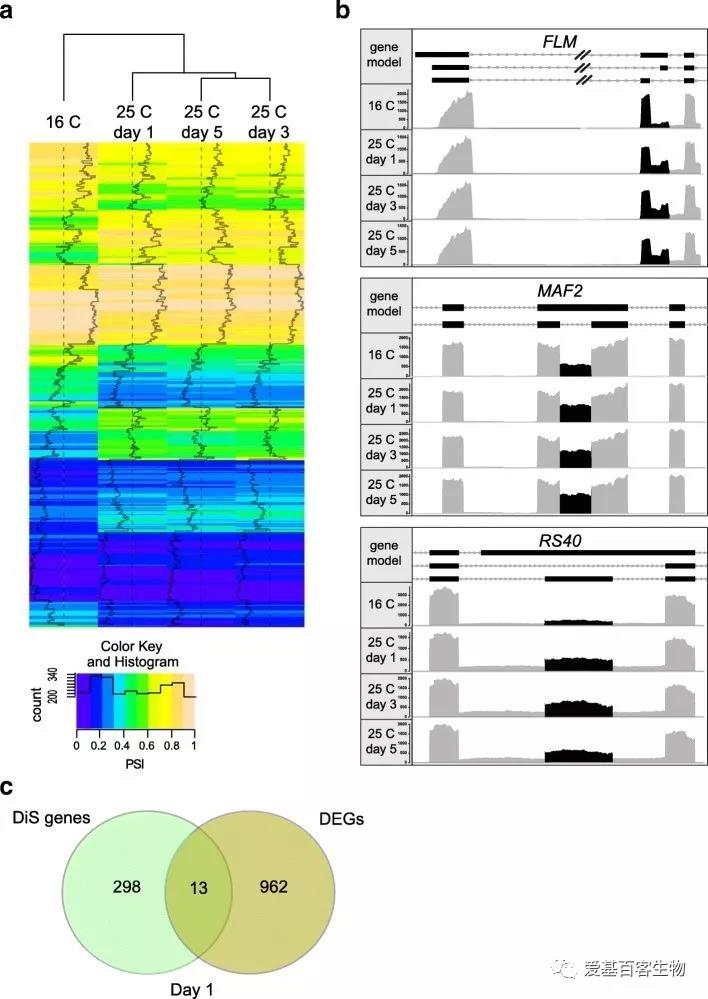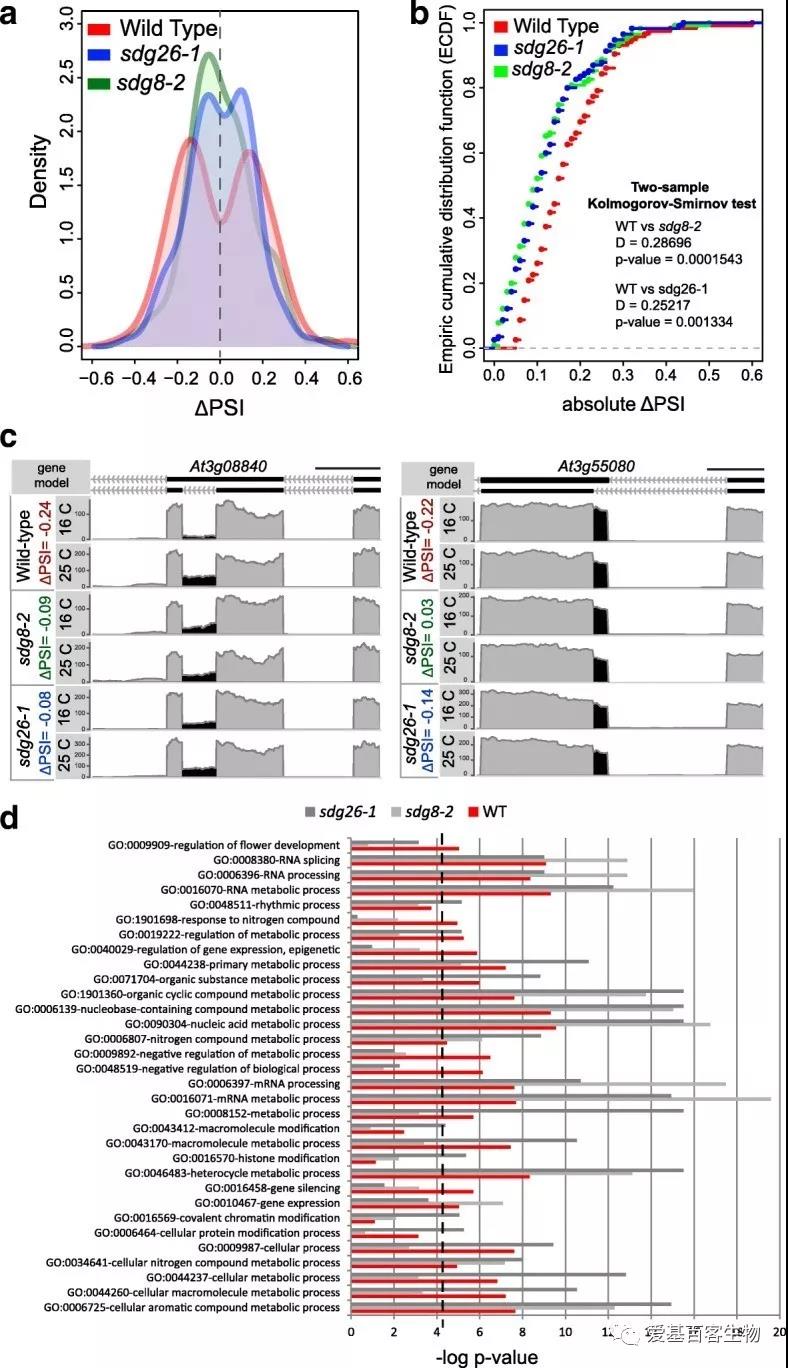植物开花调控研究进展 ----H3K36me3 介导 mRNA 可变剪切调控高温诱导植物开花
发布时间:2018-09-11 11:39 | 点击次数:
植物开花是植物从营养生长到生殖生长转变的标志之一,其受到光照、年龄、温度、激素等不同因素的影响,全球变暖的大趋势下温度对开花的影响尤为受到人们的关注。2017 年,瓦格宁根大学分子生物学实验室 R. G. H. Immink 课题组在 Genome Biology 上发表文章《Histone H3 lysine36 methylation affects temperature-induced alternative splicing and floweringin plants》,探究 H3K36me3 修饰对 mRNA 的可变剪切以及开花时间的影响。
作者通过研究不同温度处理下拟南芥材料的 mRNA 可变剪切发生情况以及差异表达基因,鉴定到了发生可变剪切的不同基因 (Fig1)。随后通过 ChIP-seq, 发现发生可变剪切的基因都被 H3K36me3 富集(Fig2)。作者通过构建组蛋白甲基化转移酶突变体,发现未发生 H3K36me3 的突变体中,可变剪切的发生受温度的影响降低,从而确定 H3K36me3 调控了高温诱导的 mRNA 可变剪切(Fig3). 最后,作者通过构建 H3K36me3 的 Writer、reader、eraser 突变体材料,对不同材料的开花时间进行统计,发现其开花时间都发生相应变化(Fig4)。
Fig 1:

Fig 2:

Fig 3:
Fig 4:
总的来说,作者研究发现了 H3K36me3 对于 mRNA 的可变剪切和高温诱导的开花时间的调控,从另一层面为适应多变环境的育种工作提供了新的思路。
原文:
Genome Biol. 2017 Jun 1;18(1):102. doi:10.1186/s13059-017-1235-x.
HistoneH3 lysine 36 methylation affects temperature-induced alternative splicing andflowering in plants.
Abstract
BACKGROUND:
Global warming severely affects flowering time and reproductive success of plants.Alternative splicing of pre-messenger RNA (mRNA) is an important mechanismunderlying ambient temperature-controlled responses in plants, yet itsregulation is poorly understood. An increase in temperature promotes changes inplant morphology as well as the transition from the vegetative to thereproductive phase in Arabidopsis thaliana via changes in splicing of keyregulatory genes. Here we investigate whether a particular histone modificationaffects ambient temperature-induced alternative splicing and flowering time.
RESULTS:
We use a genome-wide approach and perform RNA-sequencing (RNA-seq) analyses andhistone H3 lysine 36 tri-methylation (H3K36me3) chromatin immunoprecipitation sequencing(ChIP-seq) in plants exposed to different ambient temperatures. Analysis andcomparison of these datasets reveal that temperature-induced differentiallyspliced genes are enriched in H3K36me3. Moreover, we find that reduction ofH3K36me3 deposition causes alteration in temperature-induced alternativesplicing. We also show that plants with mutations in H3K36me3 writers, eraser,or readers have altered high ambient temperature-induced flowering.
CONCLUSIONS:
Our results show a key role for the histone mark H3K36me3 in splicing regulationand plant plasticity to fluctuating ambient temperature. Our findings open newperspectives for the breeding of crops that can better cope with environmentalchanges due to climate change.
KEYWORDS:
Alternativesplicing; Ambient temperature; Arabidopsis; Flowering time; H3K36me3; Histonemodification; SDG8
PMID: 28566089 PMCID: PMC5452352 DOI:10.1186/s13059-017-1235-x

